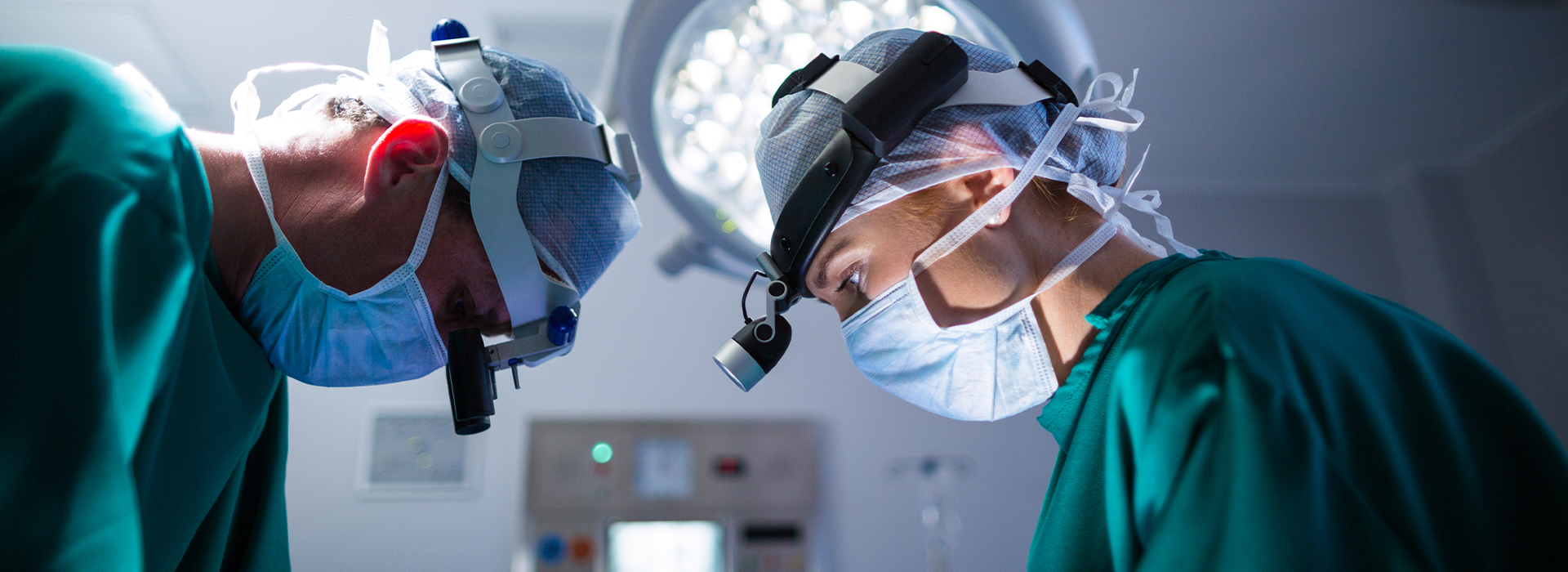Working Time
- 24/7 (General inquiry)
Contact Info
-
Phone: 037638001
Ask the Experts

A General Surgery Clinic is a medical facility specialized in providing surgical services for a wide range of conditions that require surgical intervention in various parts of the body. General surgery encompasses a broad spectrum of surgical procedures related to the abdominal organs, injuries, gastrointestinal disorders, endocrine diseases, and more. Surgeons at these clinics offer preoperative and postoperative care, focusing on achieving the best outcomes for patients.
Services Provided in a General Surgery Clinic:
1. Abdominal Surgery:
- Appendectomy: Surgical removal of the inflamed appendix.
- Hernia Repair: Surgery to correct various types of hernias (e.g., inguinal, umbilical, diaphragmatic).
- Bowel Resection: Surgery to remove parts of the intestines affected by conditions like chronic inflammatory bowel diseases (e.g., Crohn’s disease or ulcerative colitis).
- Gallbladder Surgery (Cholecystectomy): Removal of the gallbladder, often due to gallstones or other disorders.
2. Colon and Rectal Surgery:
- Colon Resection: Surgical removal of part of the colon, often performed for conditions such as colorectal cancer or inflammatory bowel disease.
- Rectal Cancer Surgery: Procedures to remove tumors from the rectum and lower colon, including potential colostomy creation.
- Hemorrhoid Surgery: Surgical treatment for hemorrhoids, including hemorrhoidectomy or minimally invasive procedures like rubber band ligation.
3. Endocrine Surgery:
- Thyroid Surgery: Removal of the thyroid gland, typically due to thyroid cancer, hyperthyroidism, or goiter.
- Parathyroid Surgery: Removal of parathyroid glands when they become overactive or develop tumors.
- Adrenal Gland Surgery: Removal of adrenal tumors or glands affected by disorders such as adrenal cancer or pheochromocytoma.
4. Oncological Surgery:
- Tumor Removal: Surgical removal of benign or malignant tumors from various body parts such as the breast, liver, or skin.
- Breast Cancer Surgery: Including mastectomy (removal of the breast) or lumpectomy (removal of a tumor with preservation of the breast).
- Lymph Node Dissection: Removal of lymph nodes affected by cancer, often as part of the treatment for cancers such as melanoma or breast cancer.
5. Emergency Surgery:
- Trauma Surgery: Surgical intervention for injuries from accidents, such as open fractures, deep wounds, and internal bleeding.
- Hemorrhage Control: Surgical treatment to control internal or external bleeding, especially in trauma cases or after a significant injury.
- Infection or Sepsis Treatment: Surgical drainage of abscesses or infected tissues to prevent the spread of infection.
6. Minimally Invasive (Laparoscopic) Surgery:
- Laparoscopic Gallbladder Surgery: Removal of the gallbladder using small incisions and a camera, reducing recovery time.
- Laparoscopic Hernia Repair: Correcting hernias through minimally invasive techniques that involve smaller incisions and faster recovery.
- Laparoscopic Bowel Surgery: Performing intestinal surgeries via small incisions, leading to quicker healing and less postoperative pain.
7. Vascular Surgery:
- Aneurysm Repair: Surgical intervention to treat aneurysms in large arteries such as the aorta, either through traditional surgery or endovascular techniques.
- Vascular Stenting and Bypass: Placement of stents or bypasses to improve blood flow in blocked or narrowed arteries.
- Varicose Vein Treatment: Surgical or minimally invasive procedures such as laser therapy to treat varicose veins and venous insufficiency.
8. Wound Care and Injury Management:
- Wound Closure: Surgical repair of large or complicated wounds through suturing or skin grafting.
- Reconstructive Surgery: Surgery to repair or reconstruct damaged tissues, particularly after burns or traumatic injuries.
- Trauma Reconstruction: Rebuilding facial features, limbs, or other body parts that have been severely damaged due to accidents or surgeries.
9. Post-Surgical Care and Follow-Up:
- Preoperative Evaluation: Comprehensive health assessments before surgery to ensure the patient is fit for surgery (including lab tests, imaging, and medical history review).
- Postoperative Care: Monitoring patients after surgery to prevent complications, manage pain, and support recovery.
- Rehabilitation: After major surgeries, rehabilitation may be necessary to restore strength, mobility, and function.
10. Bariatric (Weight Loss) Surgery:
- Gastric Bypass Surgery: Surgical procedures like Roux-en-Y gastric bypass to help patients lose weight by reducing stomach size and limiting food absorption.
- Sleeve Gastrectomy: A procedure to remove a portion of the stomach, making it smaller and helping with weight loss.
- Gastric Banding: Placing an adjustable band around the stomach to reduce its capacity and promote weight loss.
11. Cosmetic and Reconstructive Surgery:
- Plastic Surgery After Trauma: Reconstruction of body parts affected by severe injuries, burns, or diseases.
- Cosmetic Surgery: Some general surgery clinics offer elective cosmetic procedures such as abdominoplasty (tummy tuck) or liposuction.
12. Surgical Consultation and Second Opinions:
- Pre-Surgical Consultations: Providing expert advice and evaluation for patients considering surgery or in need of a second opinion regarding their condition or surgical options.
- Surgical Risk Assessment: Advising on potential risks, benefits, and expected outcomes of proposed surgeries.
Technologies Used in a General Surgery Clinic:
- X-rays: For diagnostic purposes, such as checking for fractures, foreign bodies, or tumors.
- Ultrasound: Used to visualize organs like the liver, gallbladder, and kidneys or to guide needle biopsies.
- CT Scan (Computed Tomography): Provides detailed images of organs, blood vessels, and tissues to diagnose complex conditions.
- MRI (Magnetic Resonance Imaging): For visualizing soft tissues and organs, particularly for brain, spinal cord, or joint issues.
- Endoscopy: A minimally invasive technique that uses a camera to view the inside of the body, such as the stomach, colon, or lungs.
- Laparoscopy: A minimally invasive surgical technique where small incisions and a camera are used for performing surgeries such as gallbladder removal or hernia repairs.
Summary:
A General Surgery Clinic offers comprehensive care for various medical conditions requiring surgical intervention. From abdominal surgeries, endocrine surgeries, and cancer surgeries to emergency and trauma care, these clinics provide a wide range of surgical services. With the use of advanced technologies like laparoscopic techniques, CT scans, and endoscopies, surgeons are able to perform less invasive procedures, ensuring quicker recovery times and better outcomes for patients. Whether it’s a routine procedure or a complex surgery, a general surgery clinic provides professional, compassionate care to help patients achieve optimal health.
